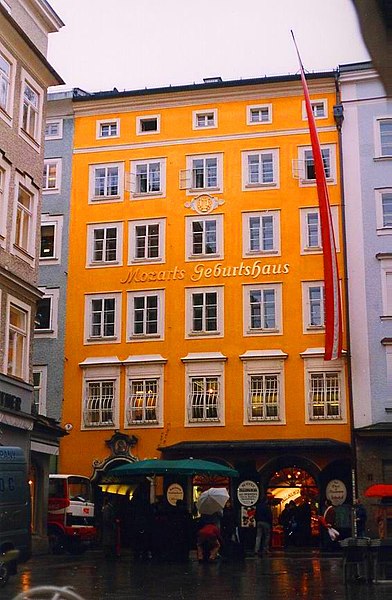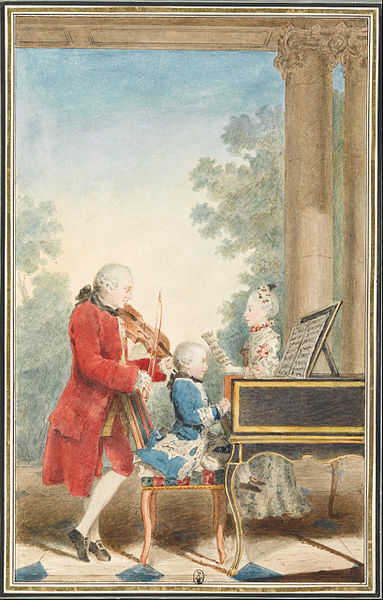Between 1769 and 1773, the young Wolfgang Amadeus Mozart and his father Leopold Mozart made three Italian journeys. The first, an extended tour of 15 months, was financed by performances for the nobility and by public concerts, and took in the most important Italian cities. The second and third journeys were to Milan, for Wolfgang to complete operas that had been commissioned there on the first visit. From the perspective of Wolfgang's musical development the journeys were a considerable success, and his talents were recognised by honours which included a papal knighthood and memberships in leading philharmonic societies.
Portrait of Mozart, aged 13, in Verona, 1770, attributed to Giambettino Cignaroli
Leopold Mozart, who was anxious to extend Wolfgang's musical education in Italy
San Marco monastery, Milan, where the Mozarts lodged during their first visit to the city
Giovanni Battista Martini, known as Padre Martini, tutored Mozart in counterpoint.
Wolfgang Amadeus Mozart was a prolific and influential composer of the Classical period. Despite his short life, his rapid pace of composition resulted in more than 800 works representing virtually every Western classical genre of his time. Many of these compositions are acknowledged as pinnacles of the symphonic, concertante, chamber, operatic, and choral repertoire. Mozart is widely regarded as being one of the greatest composers in the history of Western music, with his music admired for its "melodic beauty, its formal elegance and its richness of harmony and texture".
Portrait, c. 1781
Mozart's birthplace at Getreidegasse 9, Salzburg
Mozart family on tour: Leopold, Wolfgang, Nannerl; watercolour by Carmontelle, c. 1763
Mozart aged 14 in January 1770 (School of Verona, attributed to Giambettino Cignaroli)







